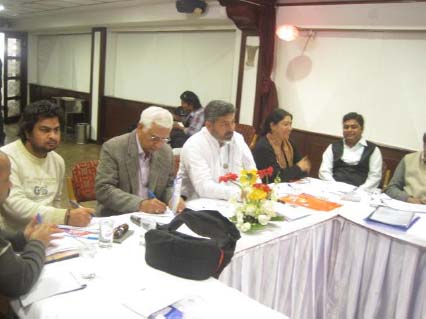Climate and Weather
The seed map - food, farmers and climate chaos: Shows the state of global agro-biodiversity today
Posted on 06 Mar, 2012 06:38 PMArticle Courtesy : Seedmap
Does it ever rain at this time? Poignant, short film capturing the story of the after-effects of unexpected heavy rain in Akola
Posted on 06 Mar, 2012 06:17 PMVideo Courtesy: Voice WOTR
GIS mapping of wetlands: Strengthening indigenous peoples response to multiple-use water services (MUS)
Posted on 05 Mar, 2012 11:04 AMArticle Courtesy : Resources Centre for Sustainable Development
The interactive GIS mapping of wetlands and MUS intervention sites is one of the outputs of the project.
Interactive layers are present on the left panel of the pdf file.
Drafting a new National water policy, 2012 without consulting the farmers would be meaningless
Posted on 04 Mar, 2012 11:02 PMAuthor : Phanish Sinha
Some ideas to save water in huge quantities: Letter to the 2012 Draft National Water Policy Committee
Posted on 01 Mar, 2012 03:03 PMAuthor: Shyam Agrawal
Utilisation of human urine as a source of nutrients for banana and maize cultivation - A compilation of research papers
Posted on 01 Mar, 2012 02:24 PMSource separated anthropogenic liquid waste (Human urine) - A potential plant nutrient for banana cultivation
In India, water problems are 'man made': Comments on the draft water policy-2012
Posted on 29 Feb, 2012 11:02 AMAuthor : Nagesh Hegde
Draft National Water Policy 2012 - Dialogue organised by NEER Foundation, Meerut on February 18, 2012
Posted on 27 Feb, 2012 10:07 AMGuest post by: Raman Kant Tyagi

Climate variability and change in the Himalayas: Community perceptions and responses - An ICIMOD study
Posted on 22 Feb, 2012 05:30 PMThe general objectives of the assessments were:
New water policy more contentious; least helpful in tackling existing issues
Posted on 22 Feb, 2012 12:34 PMAuthor : Dr. Arvind Kumar





